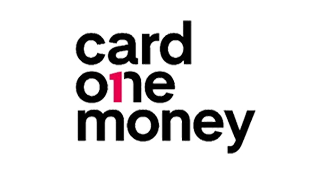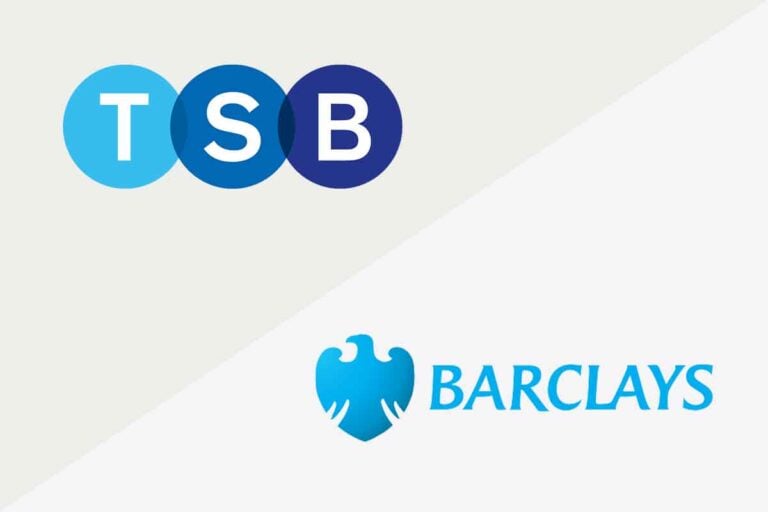Choosing the right bank for your business can be a daunting task. Each institution has unique offerings, varying costs, and differing levels of customer service. Two UK banking giants, TSB vs Barclays, are often top contenders for business banking. This article aims to provide a comprehensive comparison of the two, addressing features, costs, pros and cons, and unique aspects to help you make an informed decision.
TSB vs Barclays
| Feature | TSB | Barclays |
|---|---|---|
| Online Banking | Yes | Yes |
| Mobile App | Yes | Yes |
| Free Business Banking | 25 months | 12 months |
| Overdraft | Yes | Yes |
| Overdraft Interest | 5.0% EAR (variable) | 5.5% EAR (variable) |
| Business Credit Card | Yes | Yes |
| Card Annual Fee | £32 | £32 |
| Cashback on card | Yes (up to 1% on eligible spending) | Yes (up to 2% on eligible spending) |
| Cash Deposit Fee | £0.70 per £100 (free up to £1500) | £0.90 per £100 (free up to £1000) |
| International Payments | Yes | Yes |
| FX Fee | 2.75% | 2.99% |
| Dedicated Account Manager | Yes | Yes |
| Telephone Banking | Yes | Yes |
| Branch Banking | Yes | Yes |
| Business Loans | Yes | Yes |
| Loan Interest | From 4.5% (variable) | From 4.9% (variable) |
| Business Savings Accounts | Yes | Yes |
| Business Investment Services | No | Yes |
| SME Support and Resources | Yes | Yes |
 | Tide Business Bank Accounts ✓ Free, Plus, or Pro Account ✓ iOS & Android Mobile App ✓ Upload & Auto-Match Receipts Pricing Trial period Contact | |
 | Card One Money ✓ No Credit Checks ✓ Simple Fees ✓ Up To 3.5% Cashback Pricing Trial period Contact | |
 | ANNA Money ✓ Apply In 10 Minutes ✓ Bookkeeping & Payroll Tools ✓ User-Friendly Mobile App Pricing Trial period Contact | |
 | HSBC Business Banking ✓ Business Current Account ✓ In-Branch, Online & App Banking ✓ FSCS Protected Pricing Trial period Contact | |
 | Metro Business Banking ✓ Business Current Account ✓ High Street Presence ✓ FSCS Protected Pricing Trial period Contact | |
 | Mettle Business Banking ✓ Business Bank Account ✓ Online & App ✓ Quick & Easy Application Process Pricing Trial period Contact | |
 | Monzo Business Banking ✓ Business Current Account ✓ Dedicated mobile app experience ✓ FSCS Protected Pricing Trial period Contact | |
 | Virgin Money ✓ Business M Account ✓ In-Store, Online & App Banking ✓ Insights & Forecasting Platform Pricing Trial period Contact |
TSB
TSB offers a comprehensive package for business banking, aiming to support SMEs with both day-to-day banking and growth initiatives. Its blend of online and branch-based banking alongside a suite of business solutions make it a popular choice.
Pros and cons
Pros
- Free Business Banking: TSB provides free day-to-day business banking for 25 months, giving startups and SMEs a considerable head-start.
- Dedicated Relationship Managers: Clients have access to dedicated relationship managers who provide expert guidance and support tailored to the specific needs of the business.
- Business Marketplace: TSB’s business marketplace is an excellent resource for businesses, offering access to a range of business services and solutions such as accounting software, legal services, and more.
- Cashback Credit Card: The TSB Business Credit Card offers cashback of up to 1% on eligible spending.
Cons
- Limited International Features: TSB does not offer business investment services and has slightly higher foreign exchange fees, making it less suitable for businesses with significant international operations.
- Overdraft Interest Rate: Although competitive, TSB’s overdraft interest rate is marginally higher than some competitors.
Fees and charges
| Service | Fee |
|---|---|
| Business Current Account | Free for 25 months, then £5/month |
| Cash Deposit | £0.70 per £100 (free up to £1500) |
| Overdraft | 5.0% EAR (variable) |
| Business Credit Card | £32 annual fee |
| International Payments | £15 per transaction |
Unique and standout features
TSB’s unique offerings include the Business Marketplace – a one-stop-shop for a range of business services such as HR and legal advice, accounting software, and digital marketing tools.
The TSB Business Credit Card also offers cashback of up to 1% on eligible spending, a perk not found in all business banking packages.
The extended 25-month period of free business banking is another standout feature.
This period provides ample time for startups and small businesses to establish themselves without the burden of banking fees.
Barclays
Barclays, one of the largest banks in the UK, offers a robust suite of business banking services, blending innovative digital tools with traditional banking to support businesses of all sizes.
Pros and cons
Pros
- Wide Range of Services: Barclays provides a comprehensive suite of banking services including business loans, investment services, international banking, and more.
- Free Business Banking: Barclays offers 12 months of free business banking.
- High Tech Digital Solutions: Barclays stands out with its high-tech digital solutions including the Barclays app and online banking services. These features include advanced security measures and integration with accounting software.
- Cashback on Card: The Barclays Business Credit Card offers cashback of up to 2% on eligible spending.
Cons
- Shorter Period of Free Banking: Barclays only offers 12 months of free banking, compared to TSB’s 25 months.
- Higher Cash Deposit Fee: Barclays has a slightly higher cash deposit fee compared to TSB.
Fees and charges
| Service | Fee |
|---|---|
| Business Current Account | Free for 12 months, then £6/month |
| Cash Deposit | £0.90 per £100 (free up to £1000) |
| Overdraft | 5.5% EAR (variable) |
| Business Credit Card | £32 annual fee |
| International Payments | £15 per transaction |
Unique and standout features
Barclays offers several unique features, including a higher cashback reward on the Barclays Business Credit Card of up to 2%.
Barclays also offers business investment services, a valuable asset for growing businesses looking to maximise their capital.
Their high-tech digital solutions are also worth noting, offering top-tier security and seamless integration with accounting software.
Moreover, Barclays provides access to a range of business resources and support, including workshops, events, and an extensive library of online resources.
Conclusion – TSB vs Barclays
Both TSB and Barclays offer compelling packages for business banking.
The best choice will largely depend on your business’s specific needs and plans.
If you’re a start-up or SME looking for extended free banking and a wide range of third-party business solutions, TSB might be the right choice.
Conversely, if your business requires robust digital banking tools, a greater range of banking services, and you value cashback rewards and investment services, Barclays could be more suited to your needs.
FAQ
Most banks, including TSB and Barclays, participate in the Current Account Switch Service, which makes it easy to switch business accounts within seven working days.
Yes, businesses can have accounts with multiple banks, depending on their needs and strategies. However, it can add to administrative work.
Both TSB and Barclays provide robust security measures for their digital services, including encryption, fraud detection, and secure login procedures.
It’s a free service in the UK that lets you switch your current account from one participating bank to another. It guarantees a seamless and swift switch within seven working days.
Yes, business credit cards can help manage cash flow, separate personal and business expenses, and offer rewards like cashback. Both TSB and Barclays offer business credit cards with cashback rewards.
The best bank for your business will depend on factors like your business size, sector, international needs, and the importance of digital banking. It’s essential to evaluate what each bank offers in these areas and decide what best fits your needs.

